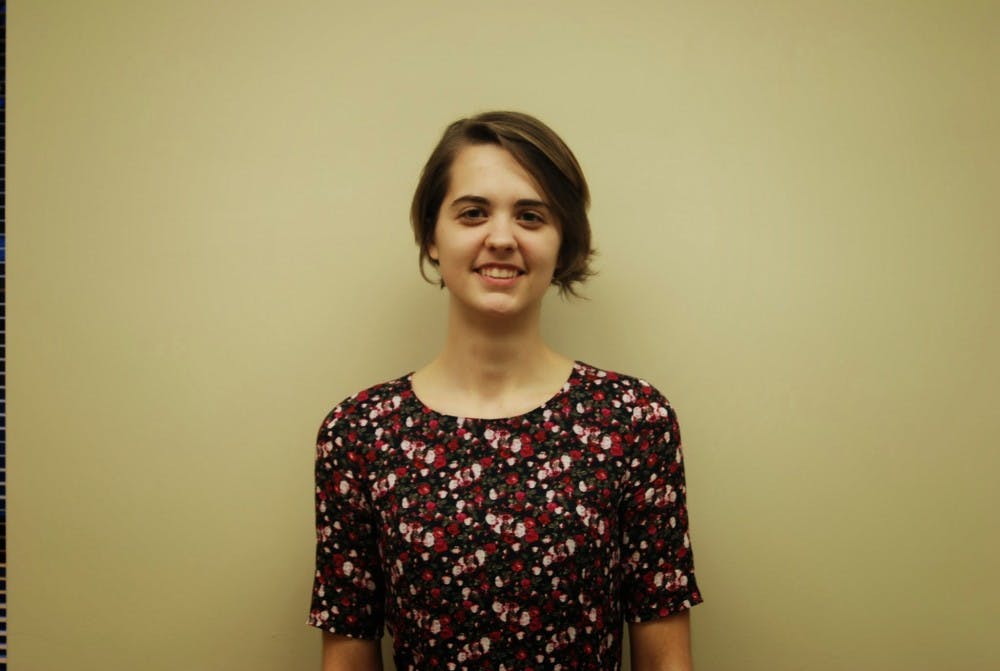Clare Duffy |
Any student that has driven or hiked through Forest Park has probably noticed the ivy overtaking a majority of the flora. A commuter student who drives through Forest Park, junior biology and German studies major Katelin Stanley, has noticed, and was inspired to do something about it.
Stanley conducts research in an effort to solve the problem of this invasive plant species.
“We’re studying how we can fight the problem of English ivy,” Stanley said. “It’s taking over all the trees and it’s forming dense mats on the understory that we think is preventing other plants from being able to break through, so that’s suppressing the native plants from growing there.”
This is not Stanley’s first time doing experiential learning. She studied abroad for a year in Salzburg and hopes to go into biological field work or research directly after graduation.
This project has the potential to benefit the University of Portland, as well as the greater Portland community. Stanley will report her findings to the Parks and Recreation Department as part of the permit she was granted to do the research, which will be published at their discretion. Additionally, it may reinforce or challenge the effectiveness of one of the service projects typically done at UP by freshman during freshman orientation week.
“One of the service projects that they do here is clearing ivy, and we want to see if that’s an effective method for keeping the ivy down,” Stanley said. “I’m hoping to find that clearing ivy can enhance more native diversity and abundance, so we’re giving the little guys a chance.”
For this independent research project, which is being conducted in Forest Park, Stanley will remove ivy from test plots and compare what grows back there to what is able to grow under the ivy mats.
“My favorite aspect of the project is that it forces me to get out into nature no matter the weather,” Stanley said. “I also experience a feeling of triumph whenever I find a little waterleaf or bigleaf maple seedling buried beneath the ivy mat.”
The project is being taken on with the guidance of biology professors David Taylor and Christine Weilhoefer. Taylor has previously worked with students completing research projects.
“By doing research, students are getting to understand the world around them more,” Taylor said. “Understanding what surrounds us is of fundamental importance.”
Stanley will also have several students helping her with the initial stage of her project by removing ivy.
One such student is junior mechanical engineering major Blair Pearson.
“I’ve never met anyone so driven,” Pearson said of Stanley. “Doing your own research and being a self-starter is on a different level (of undergraduate research).”







